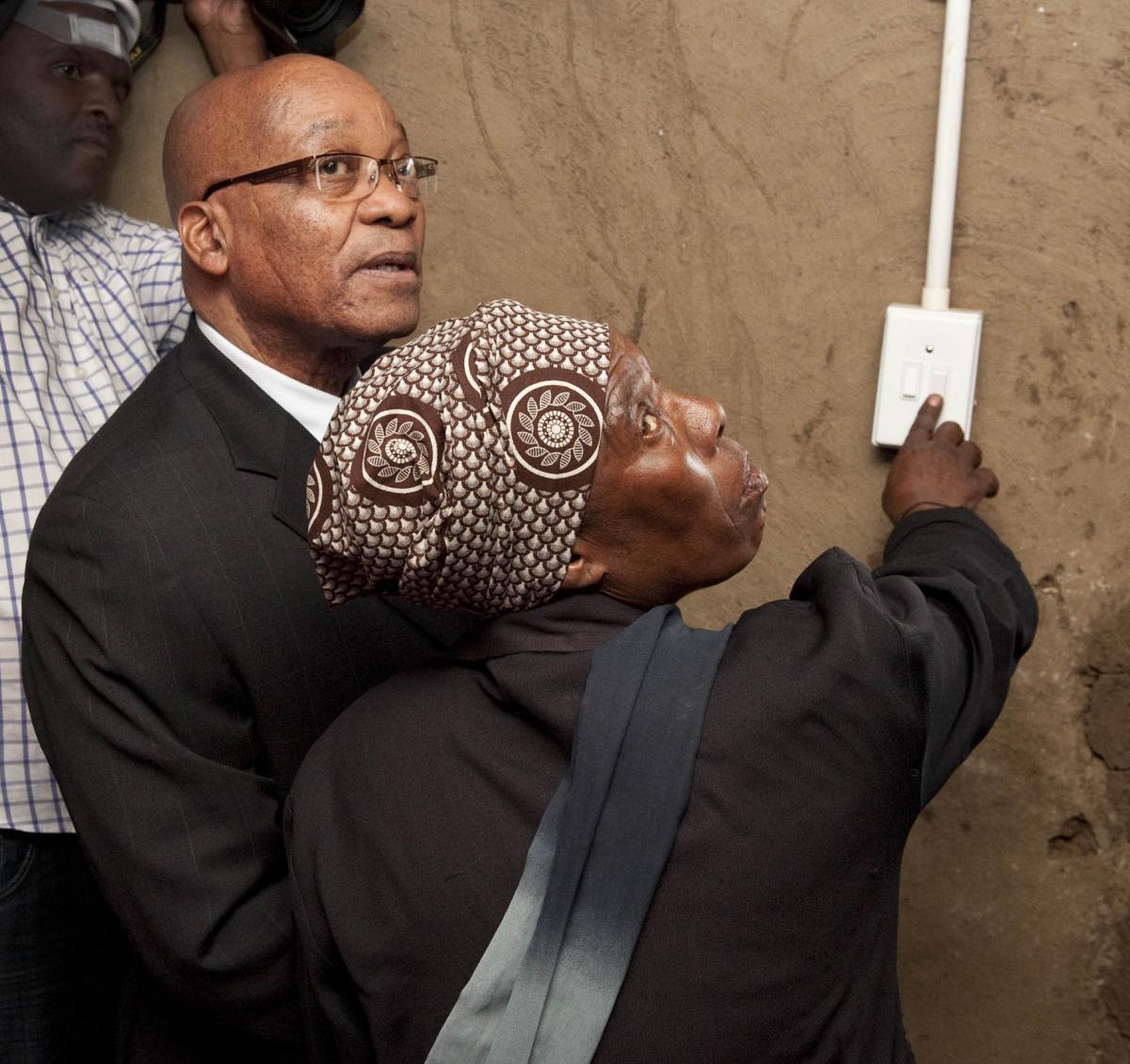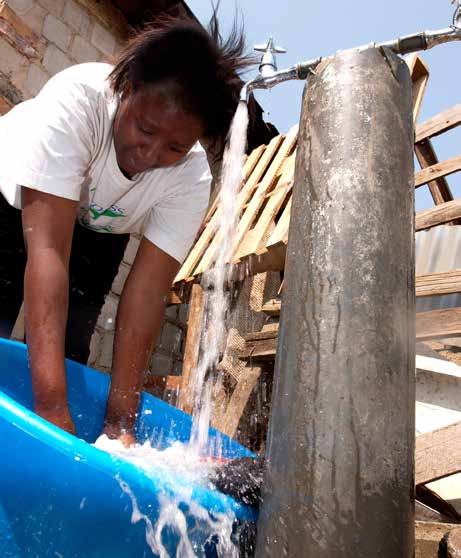Elections are about achieving a better SA
Elections are about achieving a better SA JoySouth Africans are spoilt for choice and opportunity when it comes to choosing leadership.
We are given the opportunity to vote every two-and-a-half years, with local elections and national elections more or less 30 months apart.
These are vital opportunities for all South Africans over the age of 18 to exercise their democratic rights as voters and examine what they really believe in and stand for as citizens – and how the political parties bidding for their votes match citizens’ values and expectations.
 On Wednesday 3 August, millions of South Africans will once again make their way to thousands of voting stations in all corners of the country to say which candidate should represent them on their metropolitan, city, town or district councils, and to say which political party should represent their interests.
On Wednesday 3 August, millions of South Africans will once again make their way to thousands of voting stations in all corners of the country to say which candidate should represent them on their metropolitan, city, town or district councils, and to say which political party should represent their interests.
The responsibility of making local government and local services a success rests as much on the voter as it does on the elected candidate.
Councillors standing for office in 2016 must put the interests of citizens first to build on the record of moving South Africa forward that has been established by the ANC-led government since 1994.
Between 2001 and 2014, the percentage of households with access to piped water increased from 61 percent in 2001 to 90 percent in 2014.
Households receiving free basic water services increased from seven million to 11 million in 2013, thus improving the quality of life of many, especially women in rural areas.
Giving dignity to millions of South Africans, government increased access to basic sanitation services from over 62 percent to 79 percent between 2002 and 2014.
More than 55 percent of households had access to refuse removal and collection in 2001, and the figure had increased to 64 percent by 2014.
The percentage of households that are connected to electricity supply has increased from about 70 percent in 2001 to 86 percent in 2014. This amounted to more than five million households.
Figures also show that more than two million households who are extremely poor, were exempted from paying for electricity by 2014 through the indigent programmes.
The August local government elections is a platform for South Africans to decide how to move South Africa forward in terms of services such as water, electricity, sanitation, waste management, drainage and other features of our daily lives.
As voters we should therefore make our choices based on candidates’ ideas and plans for improving our lives, rather than on what they look like, what they wear or how clever they are with words.
The local administrations that will be elected in August must deepen the work undertaken by national government since 2014 to move South Africa forward.
Contrary to what many voices around our country are suggesting, August is not about replacing the democratically elected government that voters put in place in 2014.
August 2016 is about putting in place local administrations that will be innovative, responsive and accountable in improving the quality of life in the places where we live and work.
August 2016 is about putting in place directly elected representatives who will work with residents and with community-based organisations to create a better life and to address difficulties promptly and in partnership with communities.
 August 2016 is about bringing to an end the lawlessness and destructive behaviour that sadly affect many communities around the country where consultation and partnership is absent between voters and the people who represent them.
August 2016 is about bringing to an end the lawlessness and destructive behaviour that sadly affect many communities around the country where consultation and partnership is absent between voters and the people who represent them.
August 2016 is about achieving a better South Africa through a better Johannesburg, a better Jacobsdal and a better Jozini.
August 2016 is about ensuring that clean streets, functioning traffic lights, unblocked drains and functional primary health care centres reflect the energy of our community leaders and the support of residents.
The responsibility rests on all of us to make our local areas work. While we expect councillors, who choose to stand for public office, to do their work, we must also commit to keep our end of the bargain.
We must be active participants in the meetings and deliberations of our councils; we must offer our views on projects and plans when we are invited to give public comment; we must make suggestions and share ideas that will move our communities forward, and we must, within reason, be fair and accommodating when there are difficulties.
We must pay for services we receive; we must report vandals; we must treat our municipal services and infrastructure as if they are our own assets – because they are.
This spirit of building a better South Africa must also be part of how we approach the elections themselves.
We must give all contestants in the election a fair chance to present their case. We can be firm in our views without being intolerant or violent.
We must respect the rights of all registered political parties to put their case in all parts of our country and all parts of our communities.
There are no no-go areas for any political party.
We must defend our proud record of free and fair elections, and we must ultimately ensure that once we leave the voting booth on 3 August, South Africa is a better place for all of us.